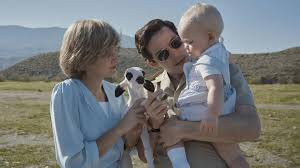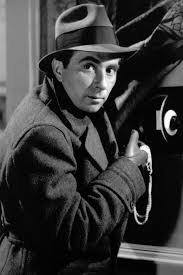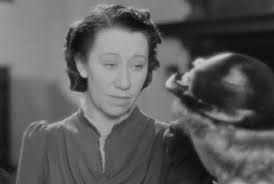 |
Romy Schneider, Michel Piccoli, Max and the Junkmen |
Thanks so much for the invitation Geoff and Cinema Reborn and StudioCanal for putting together this fantastic Claude Sautet season at the Ritz
**************
Max and the Junkmen or Max and the Scrap Merchants is the second of Claude Sautet’s films that pairs the enchanting Austrian-born actress Romy Schneider with one of cinema’s greats - actor Michel Piccoli, who sadly passed away in May this year. I think it’s a timely reminder for us to pay tribute to this vital actor, whose screen presence and cinematic influence will be sorely missed.
Orson Welles once described Romy as someone who is very attractive, but behind that beautiful face, hides a secret and whatever that secret is, when one finds out, it would turn out to be an enormous joke. I’ve always wondered about that comment, as I’m not sure if it was witty or mean, or both, and if it at all described her personality. Instead, I thought Piccoli remembered her best - in that he saw her not as a great actor, but as a star. And like all stars, they burn brightly but for a short time, (her losing her husband to suicide, then her 14 year old son in an accident, before finally succumbing to a heart attack at the age of only 42). There’s a lot to be said about her tragic fate - and Piccoli’s comment makes you think that it was predestined.
Even with this knowledge, it nonetheless disturbed me to learn that during the shoot for this film, Romy would frequently ask Piccoli about her appearance. And he would always pay her the compliment she wanted to hear: that her lipstick was perverse, or that she looked despicable, ungracious. This would always make her smile - she took pleasure in hearing these words from him, as though they were the ultimate validation of her embodiment of her character, the German streetwalker Lily.
Despite her fate, and perhaps because of her fragility, the onscreen presence of this couple is sublime. Romy’s Lily was dressed by Saint Laurent – bright coloured dresses in scarlet, magenta pink or brilliant violet with a matching ribbon tied around her throat. Or, in the now infamous black vinyl trenchcoat that hid her little black dress with the plunging neckline - her wardrobe was so of the moment and new; and caused a sensation at the time. Her outfits also helped set her world in contrast to Max’s. An ex-judge turned detective, with a private income, as rigid as he was suave in his double-breasted suits, his fedora worn just so - a hint of Melville’s The Samurai, and an echoing of his earlier role in Godard’s Contempt. Lily and Max looked to be the essence of cool: neo-noir in the 70s.
Max is based on a novel by Claude Néron, who went on to be one of Sautet’s regular collaborators. Piccoli was actually reading this very book during the shoot of The Things of Life (the film that was screened here last week) whilst waiting for resets and between takes in the apartment with Romy, and they jokingly decided that Sautet should make it into a film.
Whilst I don’t want to give too much of the plotline away, this is not a film that can be easily classified as a police story or crime drama, nor is it classic film noir, the femme fatale is not really one. Sure, there’s a prostitute, a detective, there’s a gang of petty criminals, and yes, there’s a heist, guns and a shootout too. But you shouldn’t carve a path along these lines; to do so, would be to undermine the narrative that Sautet is interested in telling. The characters and who they represent is simply the surface, and the film, like Orson’s Romy, hides a secret.
Sautet cleverly and seamlessly stitched his introduction of the small-time crooks like that of a casting call: a nickname, a freeze frame and a petty account of any previous crimes. They were dirty, sweaty, laughing, even in the face of unemployment, they were full of life and vitality in contrast to Max, who came across as hard working and principled, was instead monied and cunning, and whose face was but a blank canvas. This mask was later echoed in Daniel Auteuil’s character in A Heart in Winter, and again, this indifference repeats itself disguised in the elegance of Monsieur Arnaud (you’ll get to catch Nelly and M. Arnaud later in December, to be shown as the final film in season).
In Max and the Junkmen, the blue-toned washed out palette matched the coolness of Max’s moods, casting a deeper shadow over his sombre ilk, and the grainy film stock reminiscent of The French Connection that came out in the same year. Incidentally, the French word ‘flic’ (meaning cop) in its etymological form can be seen as the embodiment of Max’s character, a corruption of all that he knew, the word is itself a corruption of the German word ‘flique’, a criminal slang for a young man, a spy or a tattletale, and Max is a manipulator, of Lily, of his old friend Abel, and even the system in which he serves.
In all of Sautet’s films, there was always an underlying tension, brewing beneath the surface - just like real life; something is always hidden from view, a secret.
Alienation, corruption, deceit and betrayal - these themes under the direction of Sautet are no longer mere ingredients of a policier story. They are instead the four points of an obtuse moral compass. The impetus that propels Max’s fate (which then links him to everyone he touches) was not, as he reveals to his commissioner, that he did not get the results he needed to catch criminals, or that he was made a fool of by his informer. I think this film delivers Max’s actions as an existential dilemma - one can easily fall one way or another - the compass neither guiding nor abetting - it is simply, just there. Inevitably, the characters lead a life that is governed by random choices in the charting of one’s own destiny.
I would say that this sense of foreboding that permeates throughout Sautet’s body of work resonates on the level of poetry rather than malice. It requires that audiences be attentive to details, and not only of what we see, but what we hear as well - to listen to the conversations, the music, the ambience, as well as the silences. After all, Sautet had one of the finest ears in the business; in an interview he said that as a child, he remained mute and shy for a long time and that he only cared about music. So I hope that you will take notice of Phillipe Sarde’s score, an unhappy waltz that sounds more like a funeral march with its heavy underscoring of the ¾ time; waltzing its characters to their inevitable future. It is an earworm that refuses to yield and forges on until the very end.
I’d like to end by turning the focus onto Max’s character - his glacial exterior, immaculate in sharply cut pinstriped suits, his fedora, the money and his little flat are but props. Does this exterior belie a burning interior? Can we detect the fleeting telltale signs of the surfacing of Max’s conscience - was it deep hurt we see in his eyes at the beginning of the film, was that a slight twitch of his lips when he was observing Lily, or the whiteness of a sweat-stricken face? Or did we imagine all these things? A judge would certainly be able to tell right from wrong...we can’t help but wonder. There is only one thing we know for sure, that Max lived by his own philosophical convictions to the very end.
Sautet’s long time friend, the film critic and film director Bertrand Tavernier said of this film, “[t]he policier structure of Max et les Ferrailleurs (1971), [is] one of [Sautet’s] greatest achievements, worthy of Fritz Lang”. Indeed this film can be seen as a neo-noir tone poem that has deep resonances with a man’s futile search for destiny in a humanistic world. Although Max has all the hallmarks of an anti-hero, Sautet’s film leaves tensions unresolved, or rather, his film tells us that certain things are unresolvable and must remain hidden. The commissioner sums it up very well, he said “Max you’re funny, you go in search for something, and when you find it, you’re not happy.”
Do enjoy the film!
************
The screening was introduced by Janice Tong – a cinephile and one-time film scholar who has written a major study of Claude Sautet published on the Senses of Cinema Great Directors list. By day Janice is the commercial director for a tech media company, by night she enjoys watching films and good British crime dramas. She also has a particular interest in director Wong Kar-wai, as well as French and German cinemas.
CLICK HERE TO BOOK TICKETS TO THE FILMS BY CLAUDE SAUTET
























